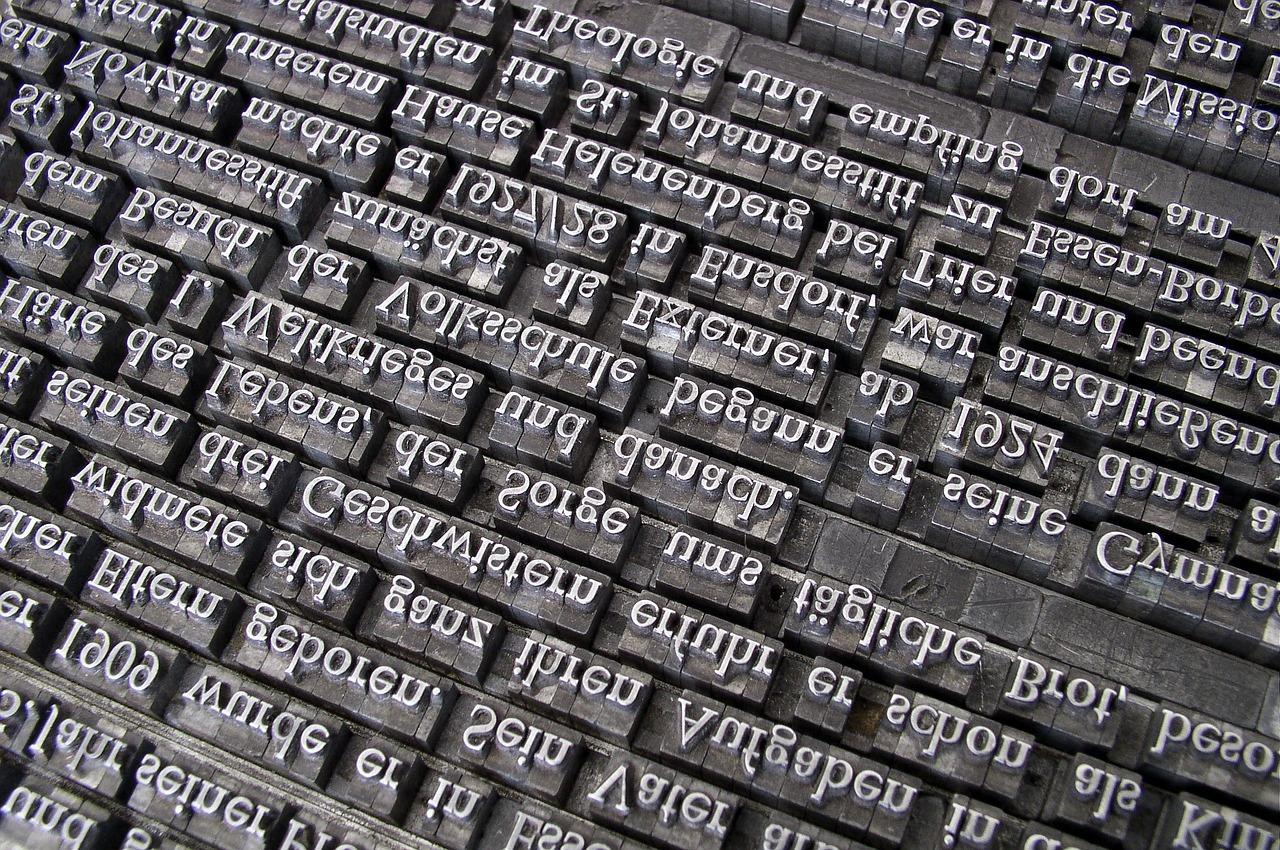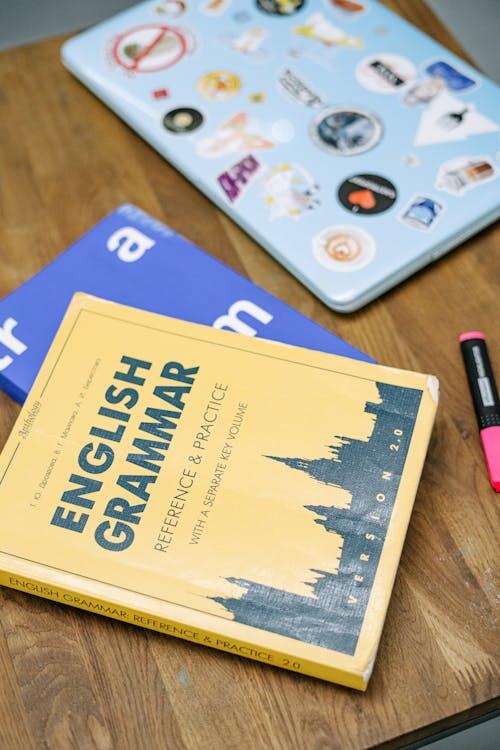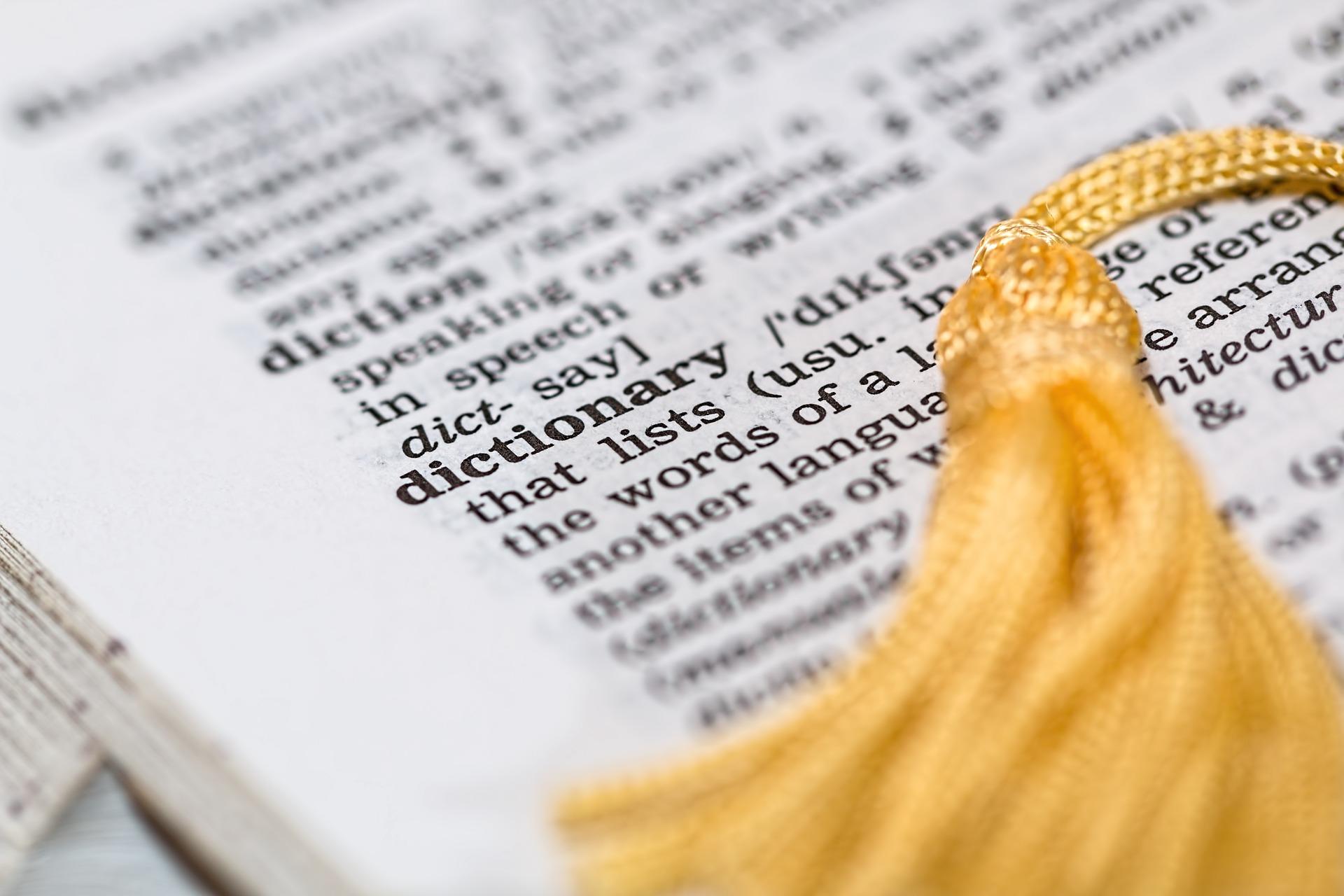
About the English Dictionary
English dictionaries are said to have originated as word lists used by Christians to translate the bible from Latin to English. The first English dictionaries are said to have been established in present-day Syria at around 2300 BC. The first dictionaries were bilingual dictionaries and were not listed alphabetically.
The first dictionary to be listed alphabetically was Robert Cawdrey's A Table Alphabeticall. It was a monolingual English dictionary and was written in 1604. The Oxford English dictionary is regarded as the most comprehensive and reliable work of its kind today
It was first published in 1928 and was revised and republished in 1989. In addition, there are various publications of the English dictionary, ranging from British to American and so many more.
Dictionaries are a fundamental tool in learning a language, whether it be your native tongue or you're learning English as a foreign language.
You can use them to check your spelling, look up a definition, and verify etymological variations of a word, as well as find out the equivalent term in another language.
But there is so much more to the world of dictionaries than meets the eye.
English dictionaries, in particular, have a rich history from their origins as glossaries or ‘word lists’ which were used by churchgoers to translate biblical texts from Latin into English, to their more recent history concerning regional variations in vocabulary and the entry of new words and phrases.
There are also several types of dictionary, which are compiled according to a certain purpose.
Some dictionaries are purely for checking spellings and whether words exist, and so, they don’t feature any kind of definition alongside the featured words, whereas others show a detailed definition with examples of usage.
As you learn English, it may be helpful to use a monolingual English dictionary alongside as a bilingual one. This will help you move away from learning new words as translations, and broaden your understanding of the English language in the target language.
Of course, the type of dictionary you choose to use will likely be different to those of other English learners, as your choice will depend on your needs and goals.
So here is a guide to English dictionaries: their history, their uses, and how each type may be useful to you as a learner of English as a second language.
The History of English Dictionaries
The first ever dictionaries are thought to have come about in what is now Syria, in around 2300 BC.
These tablets were, in fact, bilingual word lists, but they are nevertheless classed as dictionaries.
This is because such word lists which were used to help readers translate and understand texts in the same ways that modern dictionaries are used in English today, until the publication of the world’s first formal dictionaries thousands of years later.
In medieval Europe, Latin glossaries were among the first books to be printed and became widely adopted as a tool to aid in the interpretation of the bible.
Both monolingual and bilingual dictionaries and word lists became popular across the world for a range of different purposes.
You can check out esl speaking lessons here.

According to Wikipedia, the earliest English dictionaries were compilations of words from Latinate languages and their translations into English, however, entries were not listed in alphabetical order until later on in Robert Cawdrey’s A Table Alphabeticall, an English monolingual dictionary which was written in 1604.
From this publication, the world of English dictionaries began to develop over the years that followed as others put forward their suggestions and ideas of what a dictionary should be.
Versions of everything ranging from general glossaries to etymological reference books came and went as each author tried to earn the glory of having their publication accepted by the British population.
However, it wasn’t until 1755 - 150 years after Cawdrey’s work - that a simpler, more trustworthy dictionary came to the fore with the publication of Samuel Johnson’s A Dictionary of the English Language.
This work was a sort of ‘best-of’, taking the most useful characteristics from the proto-dictionaries that came before it such as alphabetical organization and textual references.
Because of its usability and helpful features, Johnson’s Dictionary became widely regarded as the standard in its field.
Sadly, for Johnson, however, his masterpiece did not stand the test of time, and the Oxford University Press stole the limelight with their take on the English Dictionary, which began to be published in short volumes from 1884.
This masterpiece known as the Oxford English Dictionary, which was 50 years in the making and finished in 1928, is still regarded as the most comprehensive and reliable work of its kind today.
This enormous guide to the language from the Early Middle English period to modern slang was revised and re-published in 1989, and a new revision is currently under way.
The OED has also stayed up-to-date and taken advantage of modern technologies by developing an online presence and promoting itself as a go-to online resource for English speakers everywhere.
Whilst the Oxford English Dictionary is the respected dictionary of the English-speaking world, regional variations do exist. The most major of these is probably Merriam-Webster, which claims to be America’s most trusted dictionary.
In 1806, Noah Webster, a US citizen, published his first American dictionary.
His goal was to reform English spelling to simplify it for the English learner as well as the native English speaker.
Although relatively few of his suggestions made it into everyday US English writing, his legacy lives on in Merriam-Webster, which bears his name.
Get information on online ESOL courses by searching for "ESL Toronto" or elsewhere on Google.
Dictionaries for Different Purposes
The origins of the modern-day dictionary as bilingual word lists and biblical glossaries to suit the needs of their users are still present in the dictionaries of today.
Modern dictionaries are split into their own families depending on their purpose, the information they provide, the way in which they deliver the information and where their information is taken from.
Firstly, dictionaries belong to one of two categories: prescriptive and descriptive.
Prescriptive dictionaries define words and explain how to use them based on what is considered proper – that’s to say that even if words take on slightly different meanings or English grammar rules based on the way they’re used, prescriptive dictionaries will focus on the original meaning and usage.
These are strict English dictionaries that only contain the meaning of words and how they are supposed to be used. Unlike descriptive dictionaries, they do not provide any other meanings apart from official ones and only contain correct meanings. These dictionaries are helpful when you are learning English for exam purposes.
Descriptive dictionaries, on the other hand, define words based on their popular usage, even if it is not deemed ‘correct’.
Today, the majority of popular English language dictionaries are regarded as descriptive, and usually indicate proper use alongside modern alternative definitions marked as ‘informal’ or ‘vulgar’. These are English dictionaries that give the actual meaning of a word and give the meaning that people have ascribed to it, the street meaning. These dictionaries contain slang and help you so that you would be able to understand people better when they speak to you.

If you are learning English to speak it fluently, it may be helpful to know the slangs used and their meanings. For example, if you want to learn English to live in Canada, you may learn different Canadian slang and their meanings. Most modern dictionaries are descriptive dictionaries.
Dictionaries are also either bilingual or monolingual, and this is a large part of their purpose.
Bilingual dictionaries provide translations of words and may feature information on their gender (for nouns) as well as their transitivity (for verbs). Some dictionaries go as far as pointing out irregular verbs – which is particularly helpful for language learners. One half is written in another language and the other half in English. It gives the literal translation of a word and can be found in many other languages. If you are a beginner learning English as a second language, this dictionary will be handy.
Monolingual dictionaries, however, only feature information on the vocabulary of one language. Given the fact that no translation is needed, monolingual dictionaries can go into further detail in their definitions, providing information on synonyms, variants, and pronunciation. These are those dictionaries written only in the English language. They have lots of information about grammar and pronunciation but can be confusing because of the multiple definitions. Nevertheless, they are instrumental because they give you several meanings of a word and how to use them but are not recommended for beginners whose first language is not English.
Surprisingly, monolingual dictionaries often feature words which are borrowed from other languages yet are in common use in their language. For example, the French word ‘cliché’ may appear.
So, here are some examples of types of dictionary as well as the type of information they provide and how it can be used for different purposes.
General Purpose Dictionaries
General purpose dictionaries are the most popular types of dictionary, as they can deliver a wide range of information on day-to-day language.
While some general dictionaries provide comprehensive definitions for each word, including information on etymological roots and pronunciation, others are more basic and focus on providing a concise definition for each word. These dictionaries deliver a wide range of information for day-to-day use. Most people keep these dictionaries at home.
When it comes to polysemy (words which are spelt the same but have different meanings), some dictionaries list several definitions under the same entry while others have several entries, each with their own definition.
The choice of general dictionary is ultimately down to the user.
Many people keep a more comprehensive and detailed dictionary at home and use a pocket dictionary for their day-to-day use such as checking spellings.
However, with the rise of the World Wide Web and online dictionaries, it’s becoming far easier to access a range of information at the touch of a button.
Thesaurus
Thesauri are all about synonyms and are generally used by people looking for a ‘better’ word to use in a given situation.
They provide a list of words with identical or similar meanings under each entry and are particularly useful for finding a word of the same meaning which may be more or less formal. Since these dictionaries are all about synonyms, they provide a list of words with similar or identical meanings to what you are looking for. People generally use them to find a better word to use in a specific situation. They help find a word of the same meaning, but more or less formal.
Specialist Dictionaries
Specialized dictionaries are not so common in everyday usage, as they exclusively feature specialist terminology for use in a specific field.
For example, medical dictionaries may be used to check usage of medical terms in certain publications.

Specialized dictionaries may also bilingual as well as monolingual, so they can be used in the world of specialised translation.
These only contain words of a specified kind. That is, they do not include words outside the given context. For example, you can have a dictionary that only contains medical terms or a dictionary that only contains legal terms. A specified dictionary comes in handy when you want to learn English words that only have to do with a specific topic.
A specified dictionary can be Bilingual or monolingual. Glossaries are also very similar to specified dictionaries. An English online course from Superprof equips you with all kinds of words, not only those that fit a specific context. If you want to learn English from all aspects, you can check out English tutors from Superprof.
Glossaries
Glossaries can be likened to a very basic version of a general dictionary, where words only have a definition.
Their purpose is to provide a reference for its users in context.
However, they may also be similar to specialised dictionaries, since they may define a specific area of language or the vocabulary from a certain publication.
Monolingual Learner’s Dictionaries
Since learning a language is about more than learning words as translations of those of your native language, monolingual learner’s dictionaries are a valuable tool for those who have a good enough knowledge of the target language to be able to use monolingual resources.
Using a monolingual dictionary provides an opportunity for each English learner to get the information they need as a non native speaker whilst learning how to learn to speak English in English.

Choosing a Dictionary to use When Learning English
The first English dictionary you encounter will likely be bilingual, since you will only have a knowledge of basic English. A great tool for eradicating mistakes in spelling.
As you improve your English vocabulary and language skills, you can move on to a monolingual English dictionary.

The first important point to make when it comes to choosing a monolingual dictionary is the type of English you wish to use.
Due to regional variation in spelling and usage, most notably between UK and US English, it is important to choose one system and stick to it to ensure consistency in your English writing.
Your choice may depend on your situation as well as personal preference.
English learner’s dictionaries aren’t hard to come by, and the giants of the dictionary world lead the field.
Both Oxford and Cambridge Dictionaries have their own online resources specifically for English learning, and the OED even offers language learning apps!
Apps provide the perfect opportunity to learn English Spelling and practice your English skills including pronunciation, fluency and knowledge of idiomatic expressions through grammar exercises, quizzes and mini exams to assess your comprehension so you can improve your vocabulary, spoken English, writing skills and listening skills to eventually speak English fluently.
So, the dictionary you choose is down to your preferences and your goals. As you study English to a more advanced level, your needs will change in line with your proficiency and new dictionaries will become appropriate.
Why is Using an English Dictionary Necessary?
When you want to learn English, having an English dictionary at hand helps in many ways.
- Improves communication: Using an English dictionary helps you improve your communication skills in the language by making sure you are using words correctly.
- Helps to understand the subject better: Using a dictionary also enables you to understand English, especially if you are just starting out.
- Helps learners find words: Using an English dictionary helps learners find the meaning of words they meet in reading and listening and words for speaking and writing.
- Improves vocabulary: English dictionaries contain many words and improve your vocabulary by giving you a wide range of words.
- Memorizing words: Knowing the meaning of a word can help learners remember those words for later use.
How to Use the English Dictionary
An English teacher online from Superprof can help you navigate the English dictionary, but if you need a guide on using an English dictionary, here are some steps to follow. We will be using the word satisfy as an example.
- First, know the word you want to look for and the letter the word begins with. For example, let's say the word starts with "s."
- The dictionary: Open your dictionary to the page with the relevant letter. This means that you should open your dictionary to the page where "s" is.
- Scan through: Look at the second letter of the word you want to look for; let's say it is a. Look for "sa" in the dictionary, then look at the third letter,e.g.,t, and look for sat in the dictionary. Do this for all the letters and scan through the dictionary until you find the word you are looking for.
- Read: Read the different meanings of the word, and choose the one which best fits your context.
- Look at the word in the different forms it can be used, such as verbs, nouns, adjectives, etc.
How to Find an English Tutor in Canada
Learning English is vital for so many reasons. If you want to take English online courses, you can check out Superprof for the best course for your level of proficiency. There are courses for beginners, as well as advanced learners. Canada has many private tutors, and it might not be easy trying to find the right one for you.
Here on Superprof, we have a wide range of tutors, whether you need an online English teacher or a physical English tutor who can teach you at home. Just click on the filter option on the site to select the tutor you feel meets your requirements in terms of location, online availability, cost, and so on. You can also interview them to ensure that you hire the right tutor for your needs.
The webcam option enables you to choose a tutor who can teach you online. When you find some, select the ones that are available at the time that is convenient for you. Lastly, interview them and choose the one you feel is the best fit.
Are you looking for a tutor to give you some extra support for your English lessons? Browse our range of private tutors on Superprof or look for English lessons online.
Summarize with AI:
















